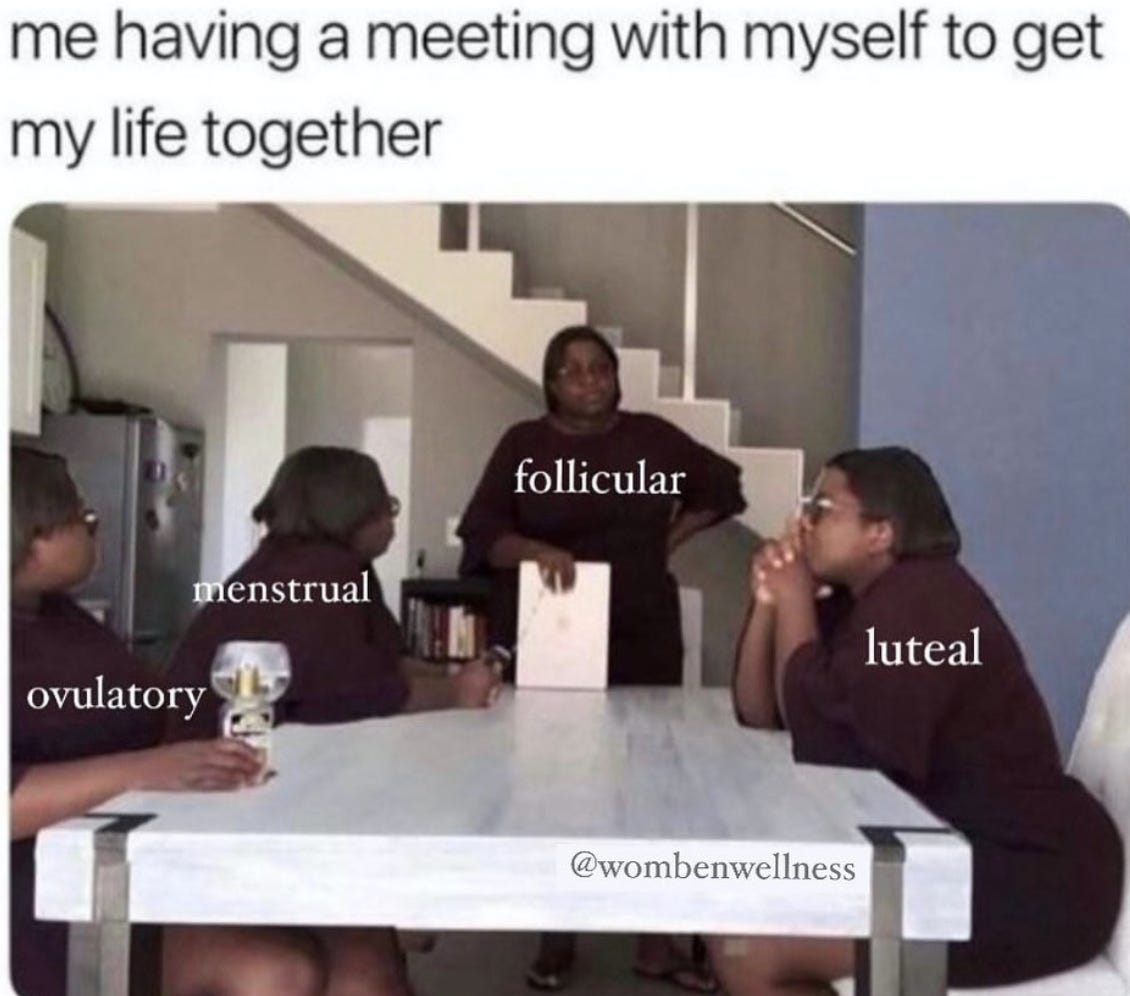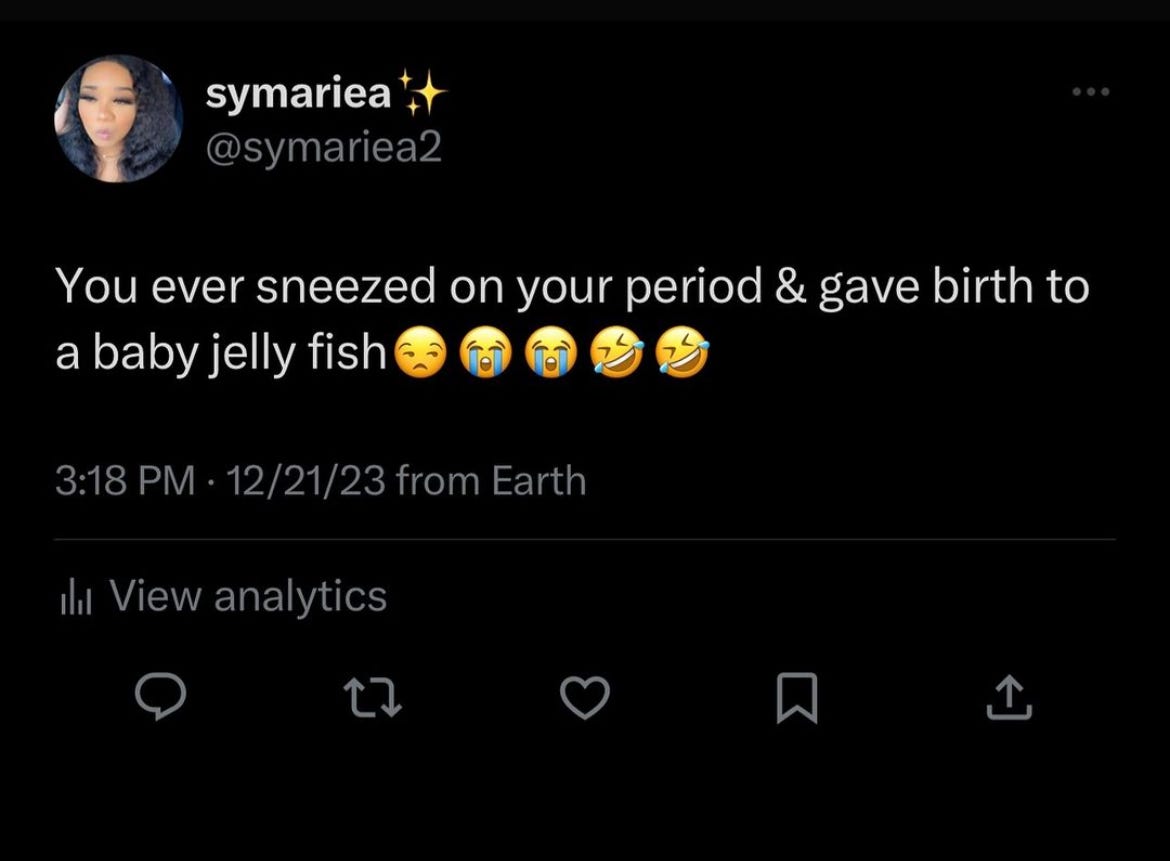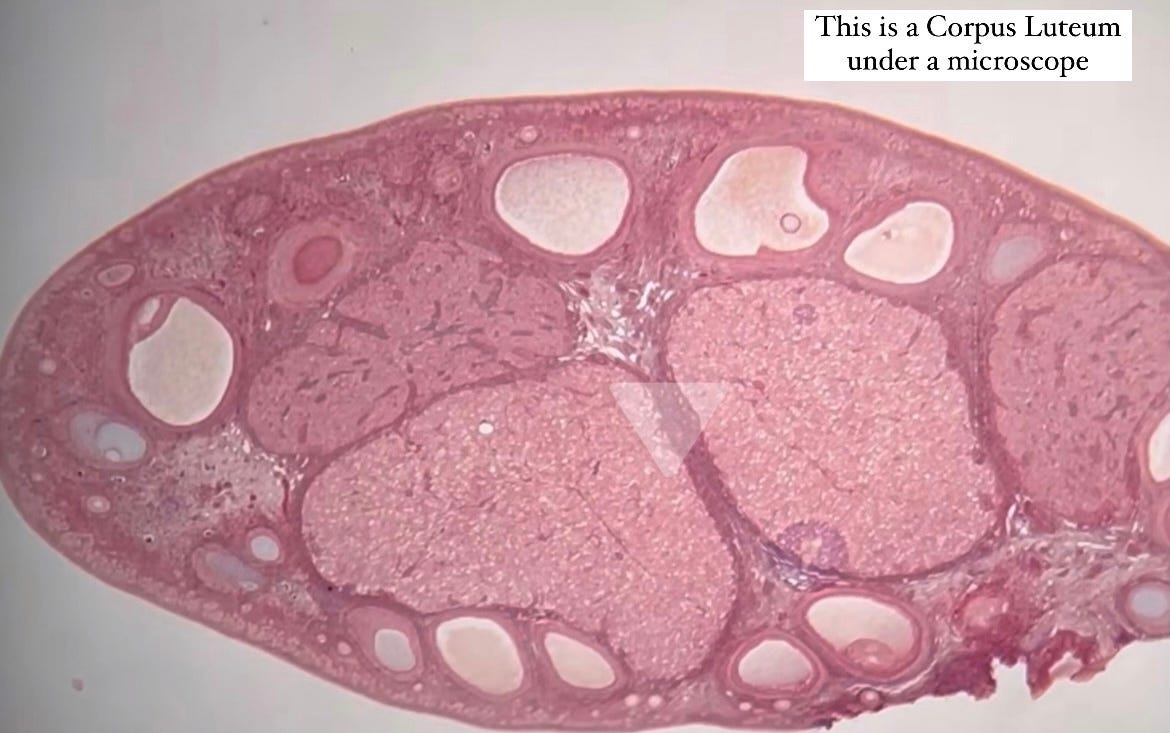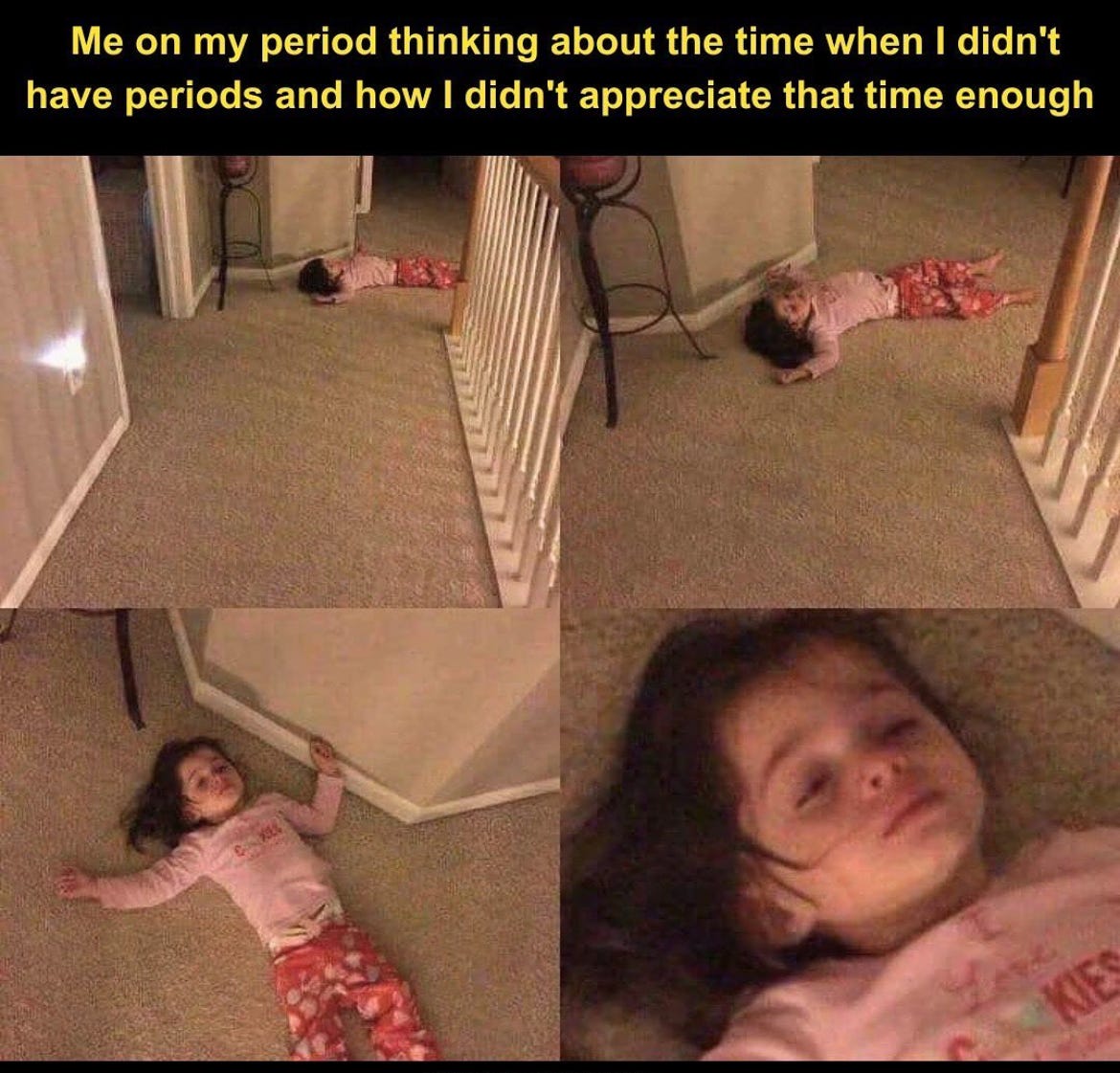Can we negotiate with the internal anarchist (Our period)?
Girl, lets goss
My first interview, I am ELATED to say is from one of my best, oldest and closest friends Haley O’Donoghue (@nursehaley). Haley helped me understand my body in a way no other health professional ever had, with intentional, logical, educated, trained information sharing. I have mentioned her in many interviews before as she is such a major influence in my life, If you’re familiar with any of my past discussions you may recall who she is, however i’m so happy that everyone gets to meet Haley on a more personal basis now!
The pivotal moment I regained power over my body happened when we were on a road trip to a local swimming hole. I spoke to Haley about a body dysmorphic disorder diagnosis I had just received and the correlation I believed it had to my PCOS diagnosis. Haley then gave me advice that changed the directory of how I began to understand my body.
She made me feel seen and heard and what she said to me ricocheted my health into a manageable process. Haley is a registered nurse, a nutritionist, a beauty therapist and has been in the aesthetics industry for almost 15 years and a nurse for 3 of those years. She has always had a massive passion for educating people on human health and helping individuals so that they can live their most optimal human experience. Haleys personal passion for hormonal health comes from her own experience with endometriosis. She has a dog named Max, a kelpie mix, who was a rescue pup. Max is the sweetest boy and has even recently learnt how to turn on the floor fan by himself. We love a smort boy! Haley loves cooking and creating new things, her favourite cuisine has recently changed and she’s enjoying exploring and cooking Asian style dishes with noodles as of late!
What Is the biggest misconception people have of female hormone in-balances that lead to conditions like PCOS and endometriosis that you want changed?
That you have to go down the medical pathway (like medication or surgery) to "treat" it.
For those who don’t know, can you give a brief explanation of what pcos does to the body and how it affects us?
The pathophysiology of PCOS is heterogeneous and shaped by the interaction of reproductive dysfunction and metabolic disorders. Hyperandrogenism and insulin resistance exacerbate one another during the development of PCOS, which is also affected by dysfunction of the hypothalamus‐pituitary‐ovarian axis.
Essentially saying that there is an interaction between a dysfunctional reproductive issue and metabolic disorder which comes in the form of insulin resistance (which is when cells in the body dont respond to insulin circulating and build up glucose for storage from the blood stream). This insulin sensitivity reactive with high levels of androgen hormones (male dominant hormones such as testosterone) and essentially cause the development of PCOS. So, it can be characterised by many different symptoms but mainly cysts on the ovaries (diagnosed via external and internal ultrasound), male pattern hair growth, insulin resistance (via a blood test), painful/irregular menstruation, acne, hair loss, fertility issues, obesity, sleep apnoea and amenorrhea (no period). You dont have to have all symptoms to have PCOS and many symptoms are different for each person.
You were the catalyst for me to understand how my diet was affecting my body (gluten, coffee, caffeine etc) Altering these food groups out changed EVERYTHING in my PCOS journey which in turn supported my mental health exceptionally. Why do you think such an obvious answer like diet; when in relation to menstrual health, is not commonly shared information?
Because I find most people dont make the link between what they consume everyday affects every cell in their body. ‘Food is fuel’ is that age old saying but if you really dig deep into that process of how what we consume enters the GI tract and breaks down into sources that feed our cells. The other side of this is that our food has changes ALOT over the last decade regarding the way we source it, the way its prepared and cooked even down to where or what its grown in. All of that has an impact on the type of food we are consuming. More and more we are understanding how food affects us differently. Also, insulin resistance all comes down to diet! I think if people really think about insulin resistance as the "pre-pre-type 2 diabetes" it will make more sense because that is essentially what it is. Then this will make more sense as to why diet is such an obvious answer.
What do you wish people knew more about PCOS?
Its more than just a "hormone imbalance" it really impacts peoples everyday lives. Also that pain is not associated with how progressed the disease is!!!!! Pain is not normal but some people have no pain and still suffer from PCOS.
Any myths you want to bust surrounding menstrual health?
I guess the big one is your "period" while on contraception is not a period. Tracking your cycle is the age old contraception and I really wish we would move back there because medication is not always the answer.
As a trained nurse I have to ask, If medication is not always the answer, what is?
Medications are such a bandaid approach and hormone conditions effect your body as a whole, as I'm sure most of your readers are well aware of if suffering from a condition.
Not to get too deep but as a trained medical professional I see a lot of side effects from medications on other parts of the body. The western model of treating the human body is based on the "biomedical model" of treating humans and that is to treat each part of the body as a seperate part. For example, you have cardiologists who deal with all matters of the heart you have neurologists who deal with all matters of the brain and you even have endocrinologists who deal with the matter of hormones in the human body, they don't even deal with the specific organs! Just the hormones! It's wild to me that we seperate the body so much! Obviously one human cannot know everything about the body but we need to work synergistically between these area to bring it all together because one organ effects the next. What you think you feel, same principle.
What do you do to combat your own period pain or angst?
I have honestly completely changed my lifestyle to combat my own diagnosis. I no longer drink alcohol, I ensure I am getting appropriate protein intake for my body, appropriate water intake, I take supplements recommended to me by a health professional which work for me, my body and my schedule. Shift work is so hard on the body and I know this so I try and do the basic human necessities like sunlight, touching the earth (magnetic pulling) and deep breathing exercises each day to ensure each month my period is less painful than the last. I think of my period as my personal health report card. And when that bad boy is off I pull my head back into the game and change my habits.
On your instagram you talk a lot about the diaspora of skin and menstrual health, apart from being one of the best fucking humans on the planet, why do you feel it’s an important part of you to share? Where does the passion come from?
I think women's health in general was so suppressed for such a long time I want to ensure my followers and friends know that I will always hold space for them to talk about menstrual health because it is so important to our overall health that we focus on that too and don't just expect yep I'm going to bleed every month, it's so much more than that!
If a reader felt nervous about seeking medical information about her period or possible PCOS/Endo diagnosis, what would your advice to them be?
I would suggest speaking to some friends first or reaching out to someone you know is going through this even if it's online! Specially platforms like Mahalia or myself to find out what questions to ask. If you feel like you are not being heard by a medical professional for the love of god find a new one! There are so many out there that will listen and will hold space and will change your life you just have to search through the ruff to find them sometimes! And also get more than one opinion!
finally… I believe there is a huge link between mental health and menstrual health, do you as well? And if so, what do you think can be done to better advocate for more education about that link?
YES! Wow yes. As a woman we move through so many stages throughout one month therefore, we cannot expect that our mood will remain the same with all that change going on internally. I think it starts in school with sex education, focus more on periods and how to track them and the basics from a young age to spark that interest in our own bodies and how they function without medications.
Haleys instagram:
https://www.instagram.com/_nursehaley?igsh=MTl4N3VpaXMweDB6eQ==





